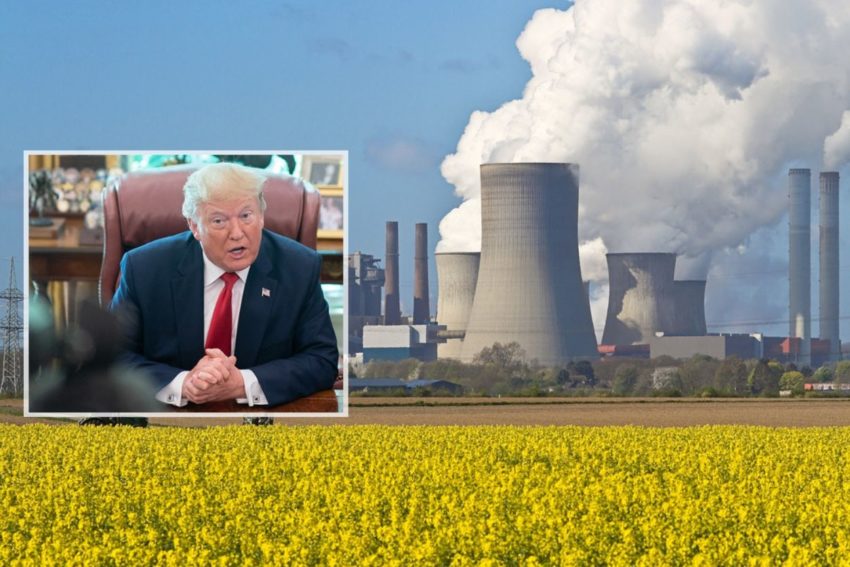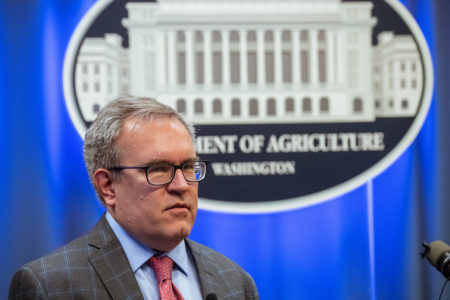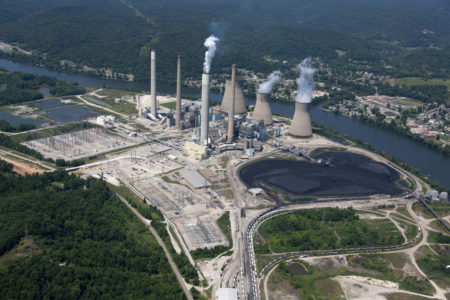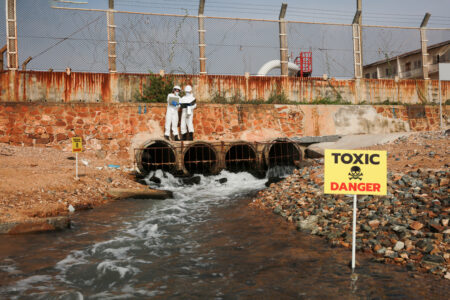
Share On Social!
From air contamination to water pollution, current white house officials are taking sizable steps to reduce the government’s role in environmental protection.
Now the EPA implemented new rules that rescind Obama-era green energy regulations set on the coal industry—a promise the President made on the campaign trail. These rules cut initiatives to reduce America’s emissions levels and allow plants to operate longer hours, according to the New York Times.
Andrew Wheeler, Chief the Environmental Protection Agency administrator and a former coal lobbyist, said his agency implemented the rollback to correct the previous administration’s overreach in climate change issues.
Still, many researchers and advocates oppose the new rule for “dirty power.”
“No matter how you slice it, this is a dramatic retrenchment” Jody Freeman, a professor of environmental law at Harvard University and a former Obama legal counselor, told the Times. “It’s not just that they’re doing very small, modest steps to reduce emissions. It’s that they’re not creating momentum to substitute renewables and substitute natural gas for coal. That’s what the Obama rule was doing, and it had a long-term view to bigger emission cuts over time.”
Reductions in Clean Energy Initiatives
The EPA is expected to implement the new rule sometime this month.
It will change existing standards by giving states and individual plants more room to set their own acceptable emissions rater, rather than implementing industry- and country-wide rules.
Current officials hope that America’s free-market will naturally solve the problem, citing that dirtier forms of energy are already in decline. They also noted that many Americans throughout the country will face economic hardship with each plant that closes.
 “I don’t know who is going to invest in a new coal fired power plant, but we’re leveling the playing field to allow that investment to occur,” Wheeler said in a press conference last month.
“I don’t know who is going to invest in a new coal fired power plant, but we’re leveling the playing field to allow that investment to occur,” Wheeler said in a press conference last month.
“[The rule] will continue our nation’s environmental progress, and it will do so legally and with proper respect for the states.”
Energy-sector leaders have come out in support of the rule. They say this plan will give them time to adjust and grow into clean energy rather than “immediately putting an end to [the] industry.”
Still, environmental researchers pushback against those claims.
They state that the administration’s rollbacks are only helping to bolster the climate change problem — one that needs much forward progress.
“President Trump’s dirty power scheme would do nothing to address the rising economic costs and the increasing dangers wrought by climate change,” said Rhea Suh, president of the Natural Resources Defense Council (NRDC), in a statement. “Instead, it would give polluters free rein and doom future generations to a dangerously hostile world.”
As the debate around the government’s role in environmental issues, and their long-term effects, Latinos and all Americans are facing potential, adverse health impacts from pollution exposure.
Climate Change Impacts (on Latinos)
This rule could result in 1,400 more premature deaths by 2030, according to the EPA.
Latinos will likely be one of the most affected demographics by an increase in coal pollution. Historically, researchers have shown that they, along with blacks, live in areas with the highest levels of air pollution.
 Worse, they also face numerous other forms of pollution at higher rates than other demographics — increasing their chances for potential harms. These levels of exposure can lead to the development of numerous illnesses, according to 2006 research.
Worse, they also face numerous other forms of pollution at higher rates than other demographics — increasing their chances for potential harms. These levels of exposure can lead to the development of numerous illnesses, according to 2006 research.
“Latino children are much more likely to suffer from asthma, lead poisoning, and exposure to contaminated water, pesticides, and mercury than are their white counterparts,” the study states. “Higher levels of stomach, cervical, and uterine cancer as well as some forms of leukemia have also been documented among Latinos. According to data from the U.S. Centers for Disease Control and Prevention… Latinos face greater exposure to herbicides and pesticides.”
Overall, climate change issues could cause more extreme weather events, raising sea levels, and changes to the Earth, according to NASA. Moreover, scientists are projecting that 35 U.S. cities, some with high Latino populations, could be underwater by the end of the century.
Environmental Protection Efforts
Multiple groups, such as the NRDC, plan to challenge this rule in court.
“[This is] an approach America can ill afford – and we’ll go to court to stop it,” Suh said. “Strengthening the Clean Power Plan is our best option for cleaning up the dirty power plants that make up more than a third of our carbon footprint. Trump should make that plan stronger, not scrap it.”
The League of Conservation Voters is also stepping up to pushback on this rule. They are asking advocates to send the EPA an email, which states marked opposition against the “dirty power” plan.
This is one of many environmental initiatives the Trump administration is rolling back.
The United States Geological Survey (USGS) also recently announced their plan to project long-term climate change impacts no longer.
You can speak up against the 2040 rule today! Send USGS Director James Riley an email, urging his agency’s action in promoting climate science, not reducing it.
Across the country, people are stepping up for climate change issues.
The EPA’s recent decisions have experts, from both sides of the political spectrum, worried about the future of the government’s role in climate change — especially concerning this rule.
“It will establish what the E.P.A. can and can’t do,” Jeffrey R. Holmstead, former EPA deputy administrator under both Bush administrations, said. “I think it really will tie the hands of future administrations.”
Read more about environmental, chemical exposure!
Editor’s Note: This article is part of a collaboration between Salud America! and the Hoffman Toxicant-Induced Loss of Tolerance (TILT) program at UT Health- San Antonio. To find out if you are TILTed due to exposure to everyday foods, chemicals, or drugs, take a self-assessment or learn more about TILT.
By The Numbers
1
Quick Survey
Can help you find out how chemically sensitive you are



